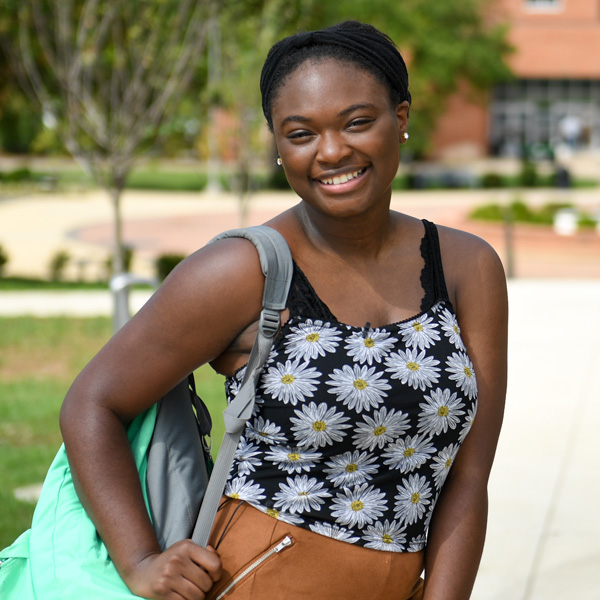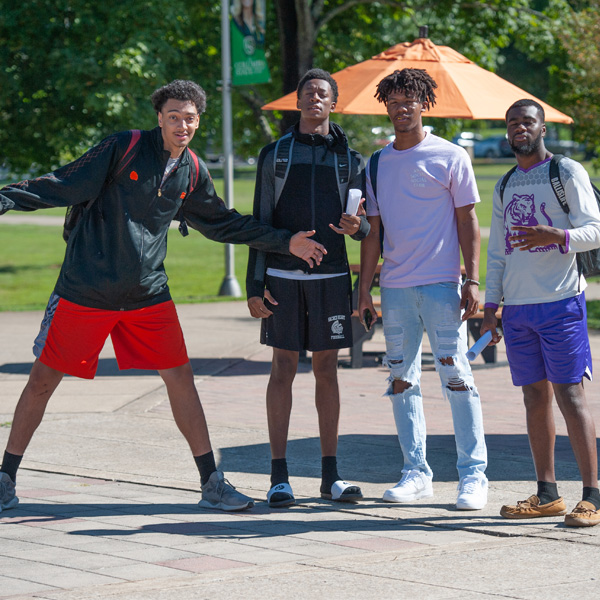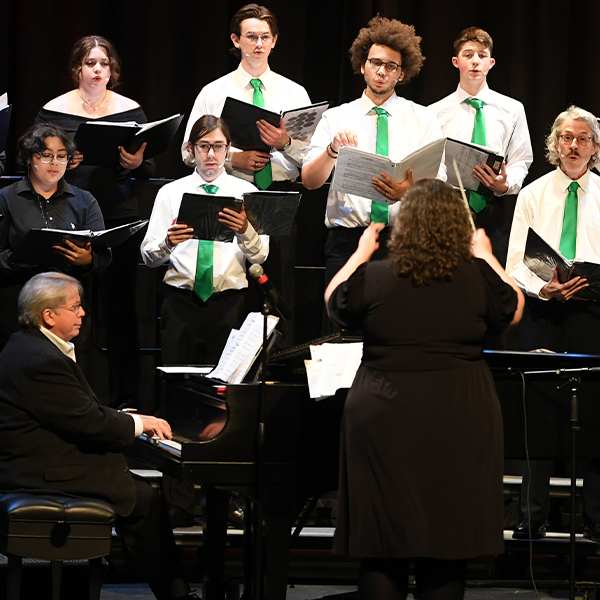COLUMBIA STATE CHEMISTRY STUDENTS SCORE HIGH ON PCAT EXAM
"The first thing I did was call Dr. Naddy when I got my score in" said Columbia State Community College student Kelby Sutton. "He was tickled to death."
Sutton, a Giles County native is one of two students at Columbia State Community College who scored an exceptionally high score on the Pharmacy College Admission Test (PCAT) during the Fall 2009 semester. Joshua Caperton, a Lawrenceburg resident, also achieved exceptionally high scores on the PCAT. "I felt so relieved when I got my scores back-it felt good." said Caperton. "I took two weeks out during the summer and just studied for the test- it was definitely a challenging experience."
The PCAT must be taken by all pre-pharmacy students and is part of what determines whether or not they are accepted into a school of pharmacy. "It's a nationwide test that covers chemistry, mathematics, reading comprehension, verbal ability and biology," explained Caperton, whose composite score on the PCAT was 82 percent, and on the chemistry portion of the exam 95 percent. Sutton completed the exam with a composite score of 73 percent and 81 percent on the chemistry portion.
"Josh made higher than 95% of the applicants in Chemistry across the country," said Dr. B.I. Naddy, a professor of chemistry who has been teaching at Columbia State for 43 years. "What we have to remember is that some of these applicants who took the exam have four-year degrees. Josh and Kelby took the PCAT from Columbia State Community College directly-speaking to the quality education students get here at Columbia State, and the quality of our students. I am very proud of both of them."
"Generally a composite score of 55 percent ensures a student acceptance into a school of pharmacy," added Naddy. "I really have never seen such high scores - and I don't think very many people have seen such high scores either. Columbia State has helped in admitting hundreds of students into pharmacy schools, but I don't remember any of those applicants who got in and now are pharmacists who had these kinds of scores. That is what makes these two students very special."
Despite all the long hours spent studying for the exam, Sutton and Caperton both agree that Dr. Naddy's dedication and teaching methods played an important role in preparing them to take the exam. "Dr. Naddy has been the major factor in both of our stories because he prepares all of his students well," said Caperton. "I've met many great teachers, but Dr. Naddy would have been the hardest one. He really prepared me. I used notes from his class to study for the PCAT."
"As far as preparing students and furthering their education, if they want to go to medical school or pharmacy school they will have to work very hard to get in," added Sutton.
"I encourage my students to critically think about different approaches in chemistry," said Naddy about his teaching methods.
Caperton will begin his first year in pharmacy school at Lipscomb University in Nashville this fall.
"I really enjoy sciences and I enjoy being around people" said Sutton who also works as a pharmacy tech at Kroger Pharmacy in Columbia. He hopes to open a small town pharmacy after graduating. "It's a really good field to get into. It's diverse and you can do a lot of different things."
Sutton has been accepted into the pharmacy program at both Belmont University and Lipscomb University and is currently in the process of deciding which program he will begin in the fall.
Both students will graduate from Columbia State in May of 2010.
Columbia State is a two-year college, serving a nine-county area in southern Middle Tennessee with locations in Columbia, Franklin, Lawrenceburg, Lewisburg, and Clifton. As Tennessee's first community college, Columbia State is committed to increasing access and enhancing diversity at all five campuses. Columbia State is a member of the Tennessee Board of Regents, the sixth largest education system in the nation. For more information, please visit www.columbiastate.edu.







